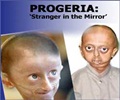Genetic Disorders
Genetic disorders are classified into Chromosomal. Single-genic, Polygenic and Mitochondrial disorders
Both environmental and
Genetic disorders are classified into the following:
1. Chromosomal Disorders- Chromosomes, which are distinct structures made up of DNA and protein, are located in the nucleus of each cell. Abnormalities in the chromosome structure or number results in a disease. Several chromosomal abnormalities can be detected by microscopic examination. Down syndrome or trisomy 21, a classical example, is a common disorder that occurs due do the presence of three copies of chromosome 21.
2. Single-gene disorders - Also called Mendelian or monogenic disorders. Mutations that occur in the DNA sequence of a single gene give rise to these disorders. They occur in about 1 out of every 200 births, and have a specific pattern of inheritance such as autosomal dominant, autosomal recessive and X-linked. There are more than 6,000 known single-gene disorders and some of the famed examples are cystic fibrosis, Huntington’s disease, Marfan syndrome and sickle cell anemia.
3. Multifactorial or polygenic Disorders - These disorders are caused by a combination of mutational changes on an array of genes and environmental factors.. Its complexity makes it more difficult to analyze multifactorial disorders. Examples include cancer, diabetes, heart disease, obesity, high blood pressure, Alzheimer’s disease and arthritis. Several mutational changes in the BRCA genes that increase the risk of developing breast cancer have been discovered.
4. Mitochondrial Disorder - These rare type of genetic disorders arise from changes in the DNA of mitochondria which are organelles found in the cytoplasm of plant and animal cells, responsible for cellular respiration. Each mitochondrion may contain 5 - 10 circular pieces of DNA and are usually passed on from the mother to the offspring.








